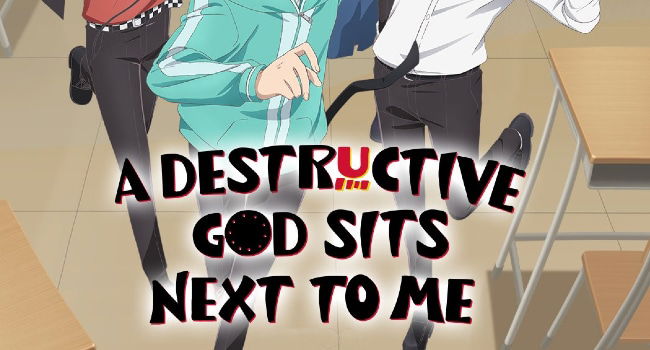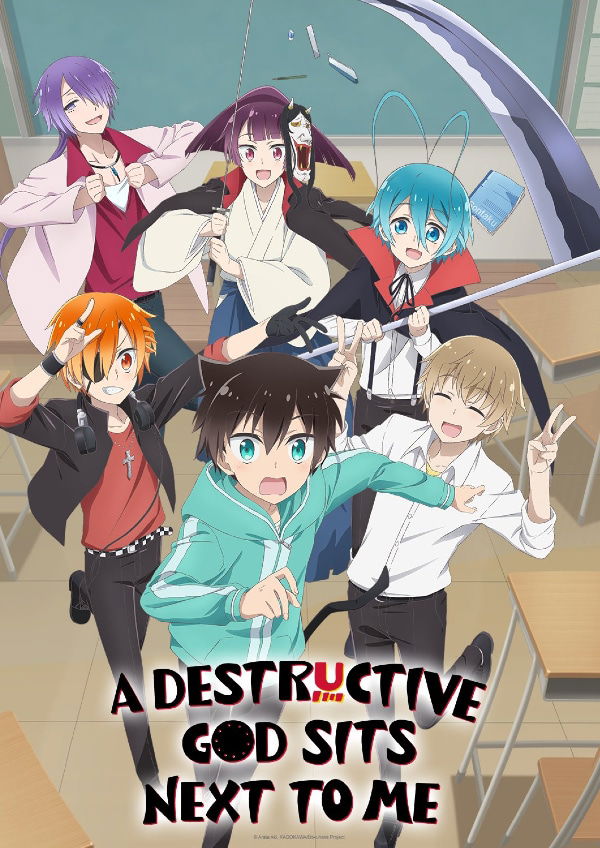
Original Run: January 11, 2020 - March 28, 2020 Number of Episodes: 12 Genre: Comedy, Slice of Life Based on the Series Created By: Arata Aki
***Warning, the following may contain spoilers for A Destructive God Sits Next to Me. Reader discretion is advised.***
Series Synopsis
To have it his way, Seri Koyuki (voiced by Jun Fukuyama) would prefer to keep his head low and not make a scene. Unfortunately, ever since the start of high school, that ideal has become impossible. For whatever reason, Seri became the fixation of his class’s resident Destructive God, Kabuto Hanadori (voiced by Takahiro Sakurai).
Kabuto believes himself to be the reincarnation of the legendary warrior Sturmhurt, who has been cursed to possess the soul of the evil demon Miguel. And according to him, Seri is Sturmhurt’s comrade, Gestöber, reborn. Needless to say, Seri is not a fan of this.
No matter what Seri says or does, he cannot separate himself from Kabuto’s delusions. Granted, Seri’s difficulties are exacerbated by Kabuto’s childhood friend, the master manipulator, Utsugi Tsukimiya (voiced by Ryouhei Kimura). Every day becomes a battle for Seri to remain calm, a fight he seems destined to lose.
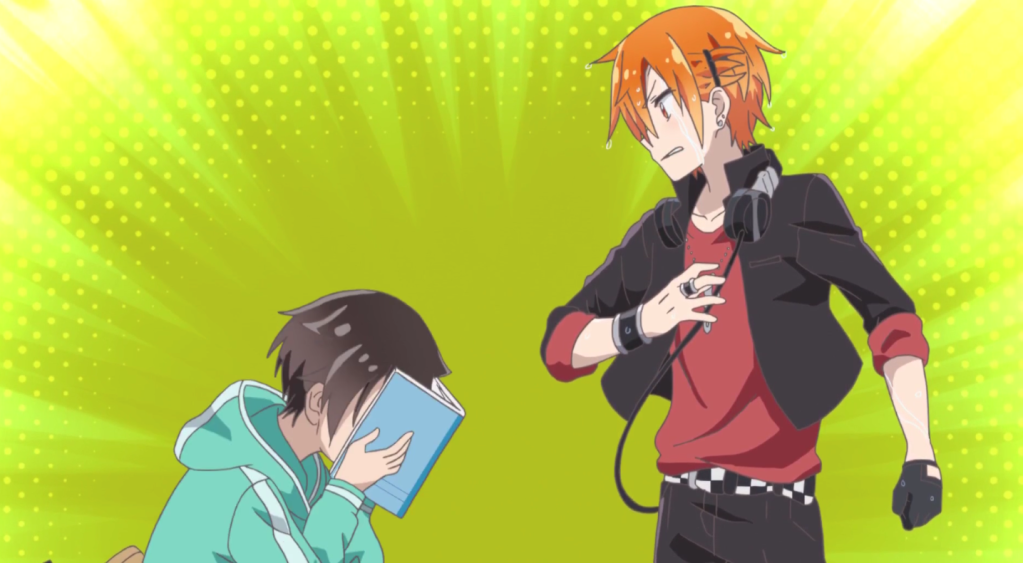
Series Positives
Raise your hand if you are one of the people who saw fall 2019’s Outburst Dreamer Boys. If you haven’t, I encourage you to do so since it was, surprisingly, a lot of fun. If you have, then maybe consider giving this series, A Destructive God Sits Next to Me (Bokuhaka), a watch. Both shows are similar in concept, with Bokuhaka being much more of a slapstick comedy.
If there is one thing you need to know about this series before going into it, know that it is very silly. Like really, really silly. There is not a drop of tension, drama, or seriousness in this show. So, hooray for you if that is your type of anime.

There were two primary pillars to its comedy. The first was its visual style.
Now, in the past, I have often interchanged visual style with animation. I am probably going to keep doing that, but for this review, I want to make a clear distinction between the two. Animation-wise, Bokuhaka wasn’t anything bad or good. However, visually, this series relied on one thing: Cuteness.
I’m not sure how else to put it. Bokuhaka could be freaking adorable, both in the most heartwarming and hilarious way. In terms of comedy, this series relied mostly on reaction-humor, with effective results. Helping to enhance that was this show’s ever-present cute-factor. Be that as it may, the visual jokes of Bokuhaka would have been hollow had it not been for the second of the two pillars I mentioned.
This show’s characters were great.

I feel confident in saying that every significant character in Bokuhaka managed to, at least, get one solid laugh out of me. The vast majority, though, were pretty well on fire throughout. But for the sake of time, let’s only focus on the main three, Seri Koyuki, Kabuto Hanadori, and Utsugi Tsukimiya.
Seri was a fine protagonist and a decent straight-man. Now, don’t ask me why, but Seri was very cat-like, both in personality and, oddly enough, in appearance. Hell, the two tufts of hair on his head looked like cat-ears, and his belt acted much like a tail. Despite the strangeness of this behavior, it was what made Seri a fun character. Although he tried to act superior to the rest of his group, he always became overwhelmed by the insanity of their antics. He was the one predictable factor in a whirlwind of unpredictability, and that would lead to his hilarious downfall.

Kabuto was the lovable dog to Seri’s uptight cat (which may have been the show’s goal, but Kabuto had zero, physical, canine features). He was loud, energetic, and was effortlessly the center of attention. And yet, it was that last point that was the funniest. Unlike other characters experiencing chuunibyou (Middle School Syndrome), Kabuto was incapable of going all-in with the persona. When faced with a difficult or threatening situation, chuunibyou characters in other anime would “heroically” stand-up to their foe with no worry of the consequences. Kabuto would try to do the same, but he was scared s@#$less. Most people could see through Kabuto’s act, an act he genuinely thought was his real personality. Mix that with Seri’s insistence of trying to stay “normal,” and you can get a good idea of how Bokuhaka’s comedy worked.
All that notwithstanding, any show can have a Seri and a Kabuto and call it a job well done. What allowed this series to stand apart was Utsugi. In short, he was a complete dick and my absolute favorite character.
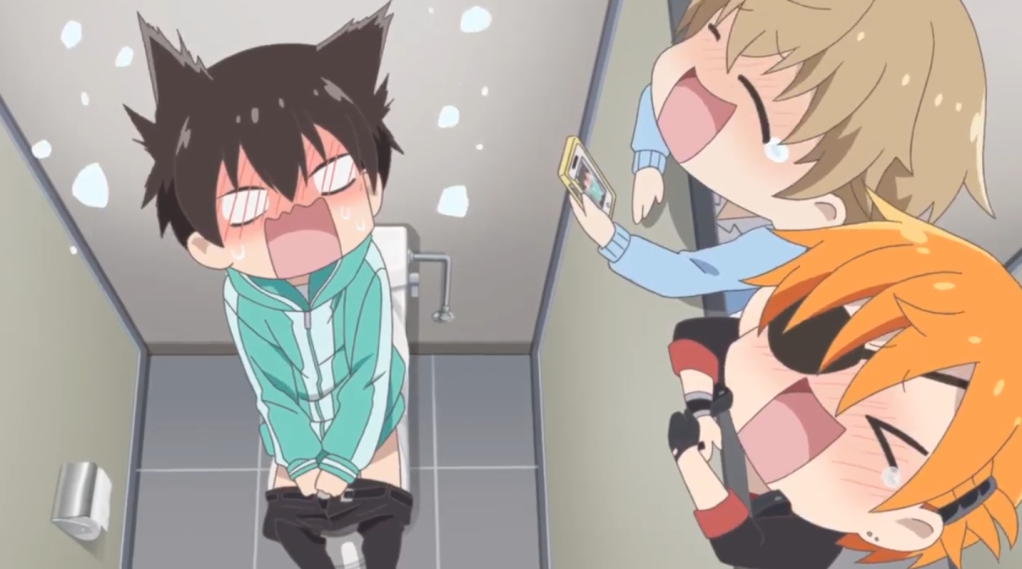
Utsugi loved to stew chaos. No matter the situation, Utsugi was in complete control, and he always had a motive (which were exclusively self-serving) for anything he did. His maliciousness was most effective on Seri because it was Seri who despised it when things didn’t go according to his intentions. This was also where Seri’s predictability came back to bite him because Utsugi could read him like a book with frightening accuracy, almost like he could read minds.
Alone, the combination of Seri, Kabuto, and Utsugi would have been enough to carry Bokuhaka. As luck would have it, though, the rest of this show’s cast only added to the overall fun factor. As a result, this series became something of a hidden gem of the 2020 winter season.

Series Negatives
I want to start this section by saying Bokuhaka’s comedy was, mostly, well-done. Many, if not the majority of this show’s jokes landed. However, there were aspects of Japanese-style humor, which I personally don’t care for, that found their way into this show.
And the biggest culprit of this was Seri.
Seri was – what we are going to call – an explainer. Essentially what this means is, many jokes that Seri was apart of, he had to explain what was happening. This form of comedy can often be seen in anime, and if you’re anything like me, it can get irritating.

To give you a typical set-up:
- Someone (A) would say or do something.
- The explainer would react.
- A would then say something or double down on the comment.
- The explainer would then explain everything that just happened, usually speaking very fast while doing so.
- Repeat the process until the scene is over.
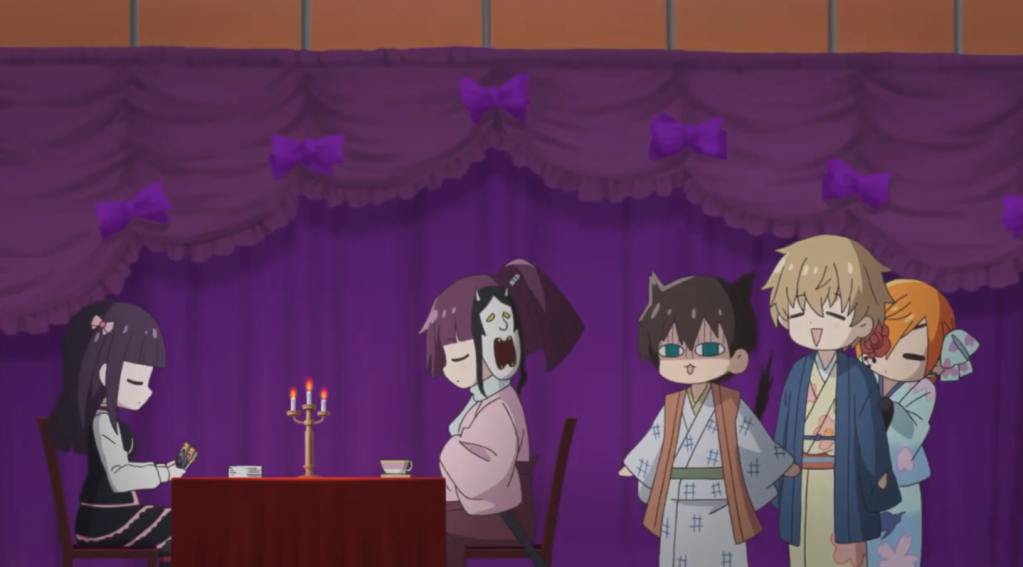
To me, this form of comedy doesn’t work the same way a joke doesn’t work if you have to tell people why it was supposed to be funny.
To Bokuhaka’s credit, it didn’t do this often. After all, this series did rely more on reactions, and often Seri didn’t have time to explain what was going on because things devolved at such a rapid pace. But on more than one occasion, a joke that initially made me laugh would then get the explaining treatment, souring the whole moment.
Like I said, though. Seri being the explainer, was more the exception than it was the rule with this series. In the end, Bokuhaka remained quite hilarious throughout its full run.

Final Thoughts
Try not to let this series fly pass your attention.
This may not be the highlight comedy of the winter 2020 season, but it is well worth a look nonetheless. With an adorable visual style and fantastic characters, this show does a great job of creating a fun and enjoyable atmosphere.
As for myself, this series was a pleasant surprise.
A Destructive God Sits Next to Me has earned a recommendation.
But these are just my thoughts. What are yours? Have you seen this series? How would you advise A Destructive God Sits Next to Me? Leave a comment down below because I would love to hear what you have to say.
And if you’ve liked what you read and want more anime content, please follow me at LofZOdyssey Anime Reviews or on Twitter @thelofzodyssey.
Also, be sure to subscribe here at The Outerhaven and never miss any of your video game, anime, and other nerdom news and content.


